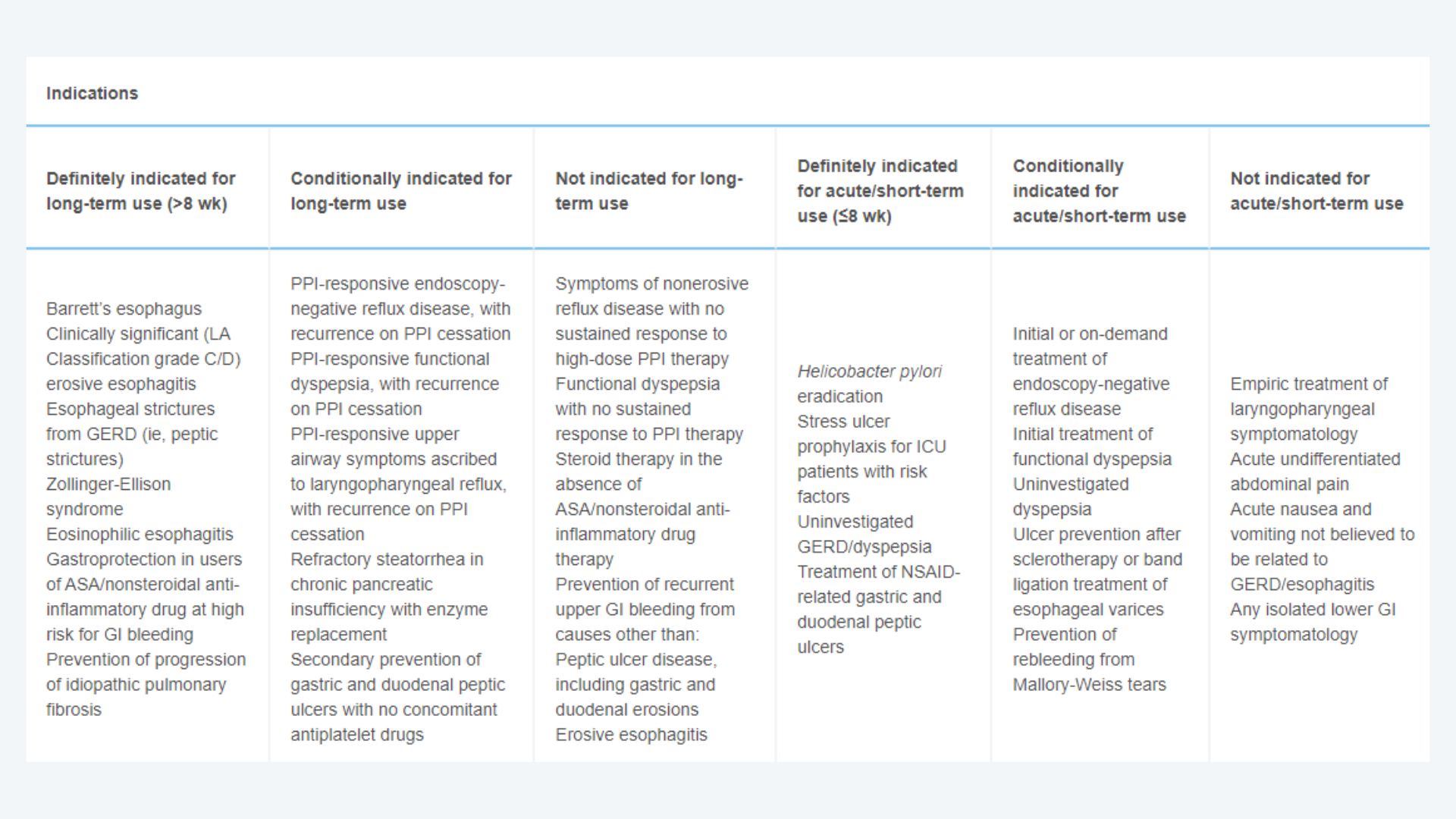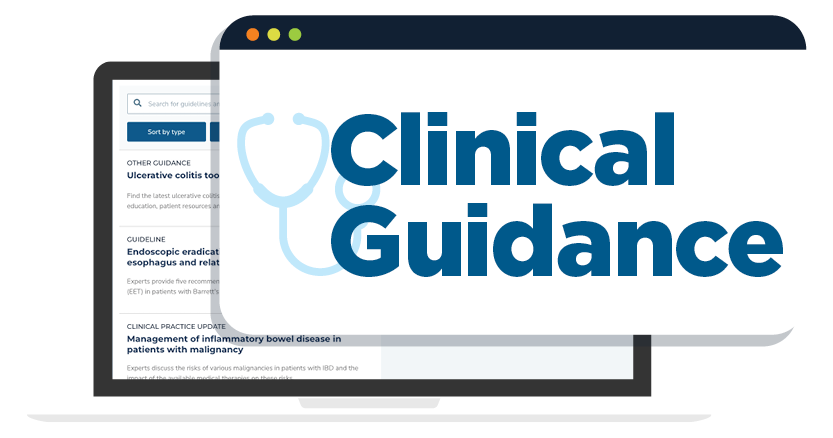1. All patients taking a PPI should have a regular review of the ongoing indications for use and documentation of that indication. This review should be the responsibility of the patient’s primary care provider.
2. All patients without a definitive indication for chronic PPI should be considered for trial of de-prescribing.
3. Most patients with an indication for chronic PPI use who take twice-daily dosing should be considered for step down to once-daily PPI.
4. Patients with complicated gastroesophageal reflux disease, such as those with a history of severe erosive esophagitis, esophageal ulcer, or peptic stricture, should generally not be considered for PPI discontinuation.
5. Patients with known Barrett’s esophagus, eosinophilic esophagitis, or idiopathic pulmonary fibrosis should generally not be considered for a trial of de-prescribing.
6. PPI users should be assessed for upper gastrointestinal bleeding risk using an evidence-based strategy before de-prescribing.
7. Patients at high risk for upper gastrointestinal bleeding should not be considered for PPI de-prescribing.
8. Patients who discontinue long-term PPI therapy should be advised that they may develop transient upper gastrointestinal symptoms due to rebound acid hypersecretion.
9. When de-prescribing PPIs, either dose tapering or abrupt discontinuation can be considered.
10. The decision to discontinue PPIs should be based solely on the lack of an indication for PPI use, and not because of concern for PPI-associated adverse events (PAAEs). The presence of a PAAE or a history of a PAAE in a current PPI user is not an independent indication for PPI withdrawal. Similarly, the presence of underlying risk factors for the development of an adverse event associated with PPI use should also not be an independent indication for PPI withdrawal.













